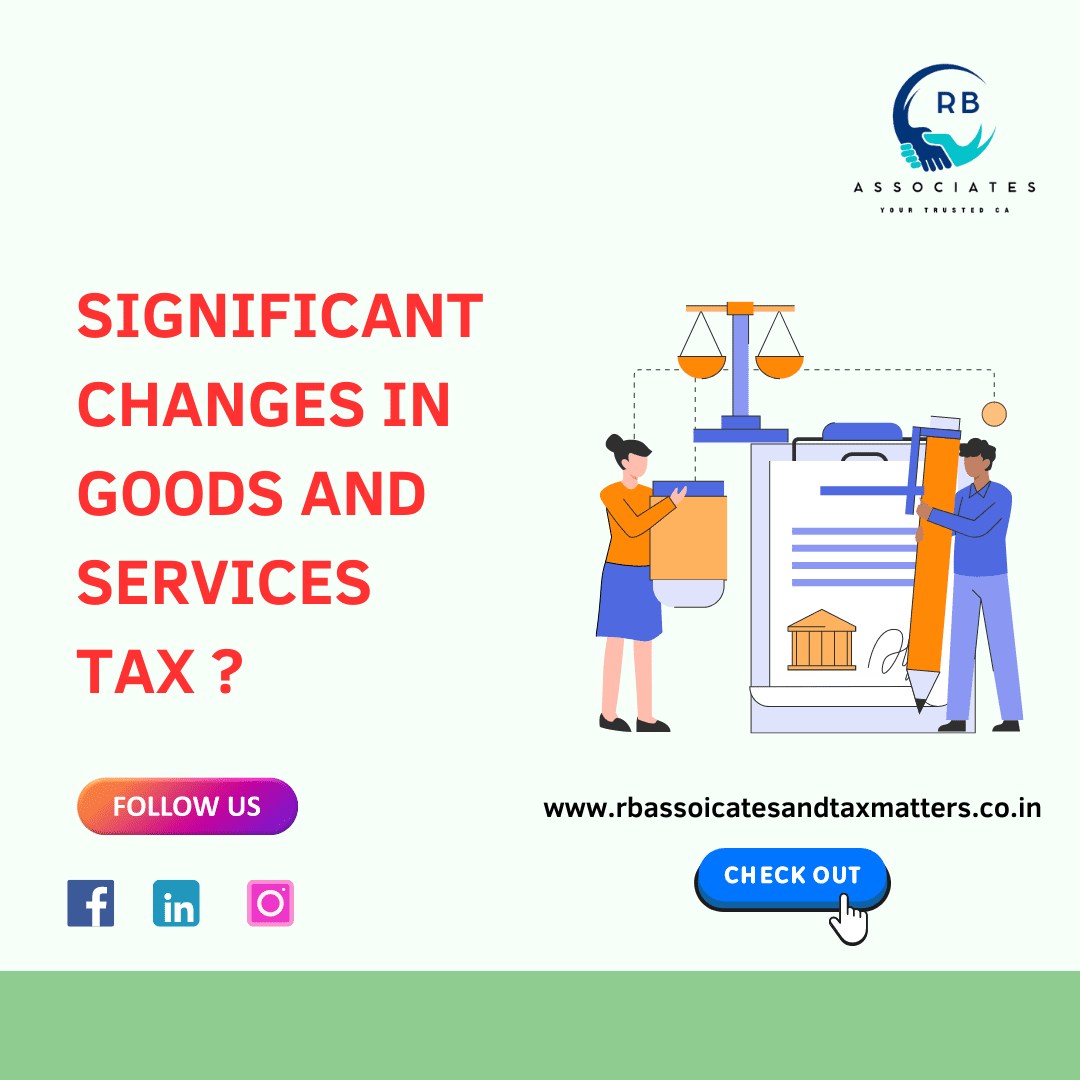The Goods and Services Tax (GST) has undergone significant changes in the current financial year, reflecting the government's ongoing efforts to refine and enhance this tax regime. These changes are pivotal for businesses, tax professionals, and consumer a like, as they influence the dynamics of tax compliance and the overall tax structure in India Here's Comprehensive look at the major GST amendments introduced this financial year.

1. Input Services Distributor (ISD) Amendments.
One of the key changes in the GST Law pertains to the input Services Distributor (ISD). The GST Council, in its 5th meetings, recommended that the ISD procedure, as laid down in Section 20 of the CGST Act, 2017. should be made mandatory for the distribution of Input Tax Credit (ITC) related to input services procured by the Head office that are attributable to both the Head Office and Branch Office, or exclusively to one or more Branch offices.
Definition and Distribution of ITC.
The definition of ISD has been amended to include the distribution of ITC in respect of services where the tax is payable under the reverse charge mechanism, as per section 9(3) and 9(4) of the CGST Act, 2017. This amendment aims to streamline the process of ITC distribution and ensure a more systematic approach to tax credit allocation.
2. Mandatory Registration for ISD
Another significant amendment is the proposed mandatory registration for ISD in cases of procurement of common input services and the distribution of ITC thereof to distinct persons. This change is expected to bring more clarity and efficiency in the distribution of tax credits across different units of a business.
3. Compliance and Reconciliation Changes
The financial year also witnessed changes in the compliance and reconciliation processes. The filing of annual return (Form GSTR-9) and reconciliation statements (Form GSTR 9C) has been updated to incorporate advanced issues and solutions, ensuring a more robust framework for GST Compliance.
4. Impact on Businesses
These Changes have a profound impact on businesses, especially those operating with multiple branches or units. The mandatory ISD registration and the revised definition and distribution process of ITC necessitate a re-evaluation of tax strategies and may require businesses to update their accounting system to comply with the new provisions.
Looking Ahead
As the GST landscape continues to evolve, it is crucial for stakeholders to stay informed about these changes and understand their implications. The government's commitment to refining the GST system promises a more streamlined tax regime that supports the growth and development of the India Economy.
In conclusion, the Current financial year has brought about pivotal changes in GST framework, aimed at enhancing the efficiency and effectiveness of the tax system. As India moves forward, these amendments are expected to play a significant role in shaping the Country fiscal policies and economic landscape.

